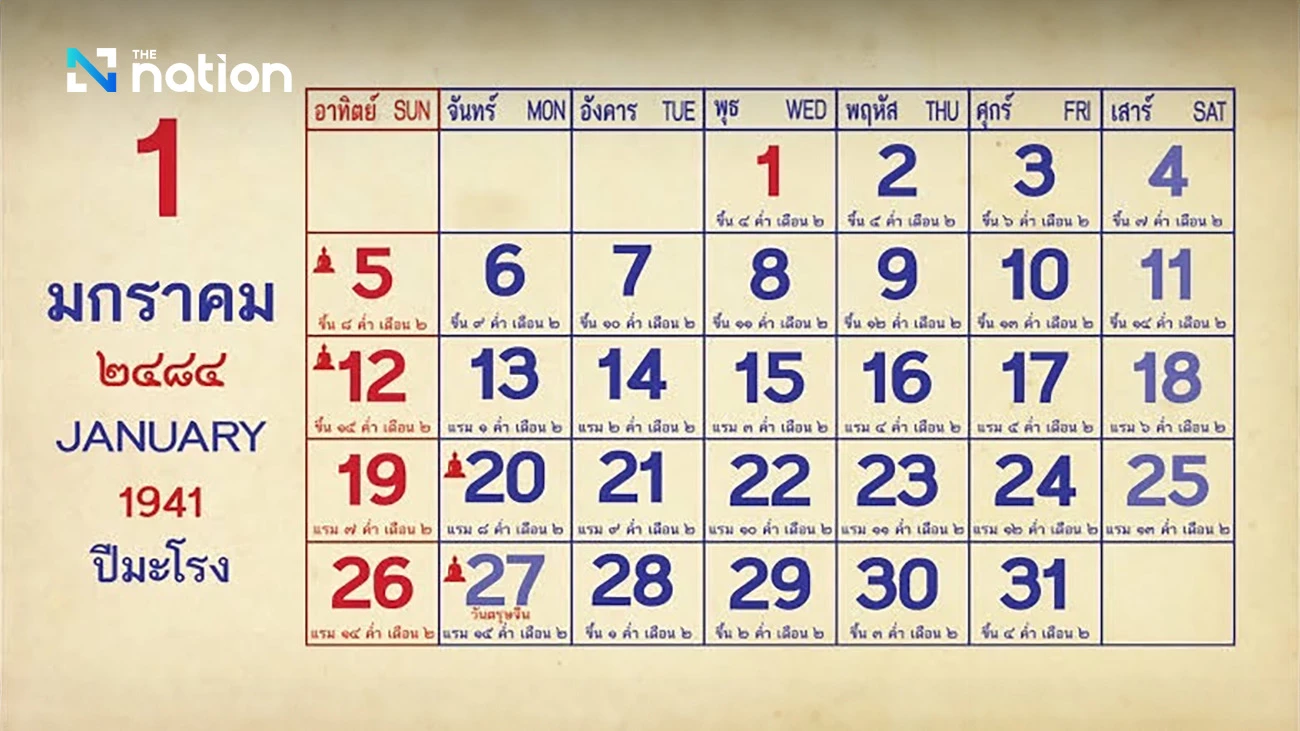
In a pivotal moment of calendar reform, the Thai government shortened 2483 BE to nine months in a bid to modernise
In 1940, Thailand experienced a rare temporal anomaly, its official year lasted only nine months.
Known in the Buddhist Era as 2483 BE, the year began in April, as tradition dictated, but was cut short on December 31.
The reason was not a natural disaster nor a wartime disruption as it was an act of modernisation, according to the Thai Parliament Museum.
For generations, Thailand observed the New Year on 1 April.
This custom, tied to seasonal and cultural rhythms, had deep roots. Yet, by the late 1930s, globalisation and Western influence prompted a reconsideration.
Prime Minister Field Marshal Plaek Phibunsongkhram, pushing for national reforms, sought to align Thai administrative systems with international norms.
 Plaek Phibunsongkhram
Plaek Phibunsongkhram
On September 6, 1940, the Thai Cabinet enacted the 2483 Calendar Years Act.

The law redefined the start of the calendar year, moving it from April 1 to January 1, beginning in 1941.
To implement this change, the government declared that the current year, 2483 BE, would end three months early.
As a result, the year 2483 BE covered only nine months—from April to December 1940. The skipped quarter, January to March 2484 BE, was never officially recognised.
Instead, January 1, 1941 was the start of the new 12-month year, designated 2484 BE, marking the first time Thailand celebrated New Year in line with the Gregorian calendar.
The reform disrupted civil services, legal contracts, and budget cycles.
Government guidelines were swiftly issued to adjust salaries, administrative deadlines, and documentation.
Ministries were instructed to recalculate annual data to reflect the shorter year, a move detailed in state publications from the era.
Though the change required considerable administrative adjustment, it symbolised a deeper shift.
Phibunsongkhram’s regime, known for its nationalist policies, was already driving other reforms—renaming Siam to Thailand in 1939, enforcing dress codes, and promoting a unified identity.
Calendar standardisation was part of that broader drive to modernise and internationalise Thai governance.
Today, Thailand continues to observe 1 January as the official New Year, even while retaining the Buddhist calendar in parallel.


